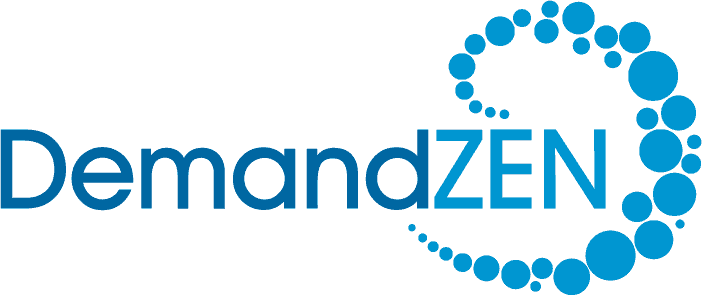4 Secrets to a Great Remote SDR Onboarding

Onboarding can make or break an employee’s success in a company. In most companies, an SDR’s orientation experience can be improved. This will provide a better experience, which supports longer tenure with your company. At DemandZEN, we want to set up our SDRs for success from the beginning. Here are 4 secrets to a great remote SDR onboarding:
1. Structure, Structure, Structure
A new SDR wants to feel confident that their new place of employment “has their act together.” So, DemandZEN affirms this from the beginning with a structured onboarding. DemandZEN’s Training Facilitator, Sally Yoskowitz, guides new SDRs to success through a formal training curriculum lasting 4 weeks. New hires receive a training guide. It explicitly outlines an 8 AM – 6 PM, Mon – Fri schedule for their first four weeks of work. Being able to anticipate what’ll happen each day sets new hires at ease. Starting a new job can be intimidating. So, knowing what to expect can ease people’s minds.
“Working remotely presents challenges due to the additional technology required. I believe that having a thorough understanding of those tools and “how it all works” is essential to a successful onboarding (and beyond!) for our SDRs. Through our “hands-on” approach to training, new SDRs are introduced to DemandZEN’s systems, culture, communication, and “team” approach to appointment setting. Our desks may be thousands of miles apart, but it never feels that way!” – Sally Yoskowitz, Training Facilitator, DemandZEN
2. Onboarding in Teams
On average, 8 new hires are brought on board and put on training teams each month. The teams go through the 4-week training process together utilizing a Zoom Hangout Room. In other words, this allows the new team to meet and go through the training material. This room acts as a home base for the new hires. After splitting off into Zoom Breakrooms for ice-breaking exercises or returning from lunch, new hires return to the same Zoom Room. This setup makes it clear to new hires from the beginning that DZ values our community.
Between weeks two and three, the training team splits off. A Project Manager assigns each SDR to a DemandZEN calling team lead. So, they become fully immersed in the DemandZEN team culture. They join the team’s Slack channel and attend daily meetings to witness the team’s camaraderie that makes DemandZEN great. Additionally, they’re introduced to clients, put on calling campaigns, and begin managing their days more independently. Our training facilitator Sally and their Program Manager are always available to coach further and answer questions.
(You can check out our Slack engagement blog to see the culture new hires are immersed into!)
3. Month Long Minimum!
Cramming onboarding in just a week or two decreases retention and performance. All DZ SDRs go through a four-week training period.
- First off, in week 1: HR setup, Core Values w/ our founders, description of the role, introduction to our systems, an overview of expectations w/ VP, and practice pitching.
- Next, in week 2: Introduction to their calling team and program manager, introduction to Slack culture (we are admitted Slackaholics!), shadowing experienced callers, role play calls, and beginning their first calls with supervision.
- Lastly, in week 3-4: over these two weeks, SDRs days are less structured. They focus on objection handling and scheduling meetings. The management team still monitors new hires, as they start to call without assistance. The management team gives correction, when necessary, to aid improvement.
If thrown into a role without adequate training, an SDR can feel overwhelmed, leading to a higher turnover rate. We seek to ease our SDRs into their role and provide them with real-life calling experience during training knowing they have support at the moment if they require it.
4. Executives Must Show Face
At DemandZEN, success originates from the top. In other words, the executive’s role in onboarding is to lay the foundation of DemandZEN, which is equal part culture and performance. Within the first week of employment, they’ll have a meeting scheduled with Amanda Moore and Bart Bartlett, our CPO and CEO and co-founders. They reveal the culture they aspire to instill at DemandZEN, providing new employees with their “why” to become high performers. In addition, they’ll have a meeting with Lynn Wik, VP of Service Delivery, to go over performance expectations. Needless, to say, this transparency allows new employees to see their leaders aren’t off in some mysterious place within the hierarchy. They’re leading from the front, they’re accessible, and they wish for your success as well!
In conclusion, remote Onboarding presents unique challenges. Because without the ability to access your coworkers in a physical space, every aspect of the process needs to be walked through over Zoom. At DemandZEN, we believe that with structure and intention during remote onboarding, the distance won’t feel so large, and our SDRs will be successful!
You Might Also Enjoy These Posts
How to Create an Exceptional Client Experience
7 Reasons Why Relevant Data is Important to Your Organization
Welcome To DemandZEN
DemandZEN specializes in Account-Based Demand Generation and solving the challenges around finding, engaging and converting target accounts into real opportunities for B2B Technology and Services companies.


